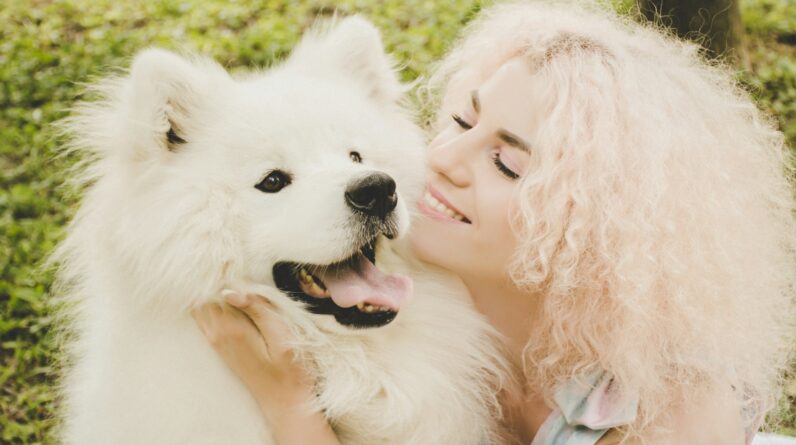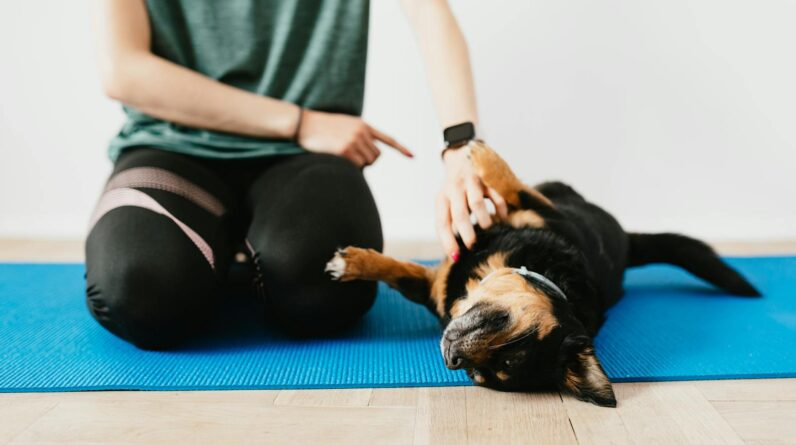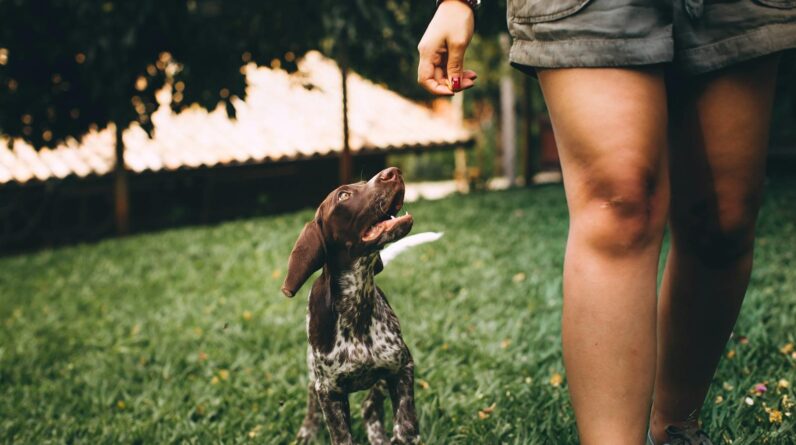
Letting Your Dog Share Your Bed: Yay or Nay?
Hi there, fellow dog lovers! Have you ever wondered if it’s a good idea to let your furry best friend sleep in your bed with you? Let’s chat about it!
Some people love snuggling up with their dog at night, while others are not too sure. It can be a cozy feeling to have your pooch by your side, but there are a few things to think about before you invite them under the covers.
Why Some People Say Yes
First off, there are some pretty great reasons why having your dog sleep in your bed might be awesome. It makes lots of folks feel super safe to have their dog close by when they’re snoozing. After all, dogs are like built-in alarms if something goes bump in the night.
Plus, cuddling with dogs can make you feel calm and happy. There’s even a fancy word for it – oxytocin. It’s like a feel-good hug hormone that whooshes through your body when you hug your dog. Neat, right?
And let’s not forget, some dogs really dig it. They may feel more relaxed and like part of the family when they get to sleep right there with their human pals.
Keep an Eye on Cleanliness
But, hold on! Before you roll out the red carpet for your pooch, think about how clean things will stay. Your dog loves to play outside, roll in the grass, and sometimes in yucky stuff too. All of that can end up in your bed if they hop in right after. That means more baths for them and more laundry for you.
It’s not just dirt, by the way. Dogs can bring other unwelcomed guests like fleas and ticks. Not fun at all.
Allergies Can Be a Bother
Oh, and if you or anyone in your family has allergies, think twice. Dog fur and dander can really make those allergies act up. It can turn a good night’s sleep into a sneezy, itchy, not-so-fun night.
Who’s the Boss?
Another thing to ask yourself is who’s the boss in your house? If letting your dog into your bed makes them think they’re in charge, you might have a problem. Some dogs might get the idea that they own the place and become a bit bossy. That’s not cool when it comes to things like meal times, walks, or when you just want to sit where they’re sitting!
Puppy or Grown-up Dog?
And, hey, age matters too. If you’ve got a new puppy, letting them sleep in bed right away might make potty training harder. Puppies are like little kids; they can’t hold it all night. You might wake up to some surprises! With grown-up dogs, it’s different. Most of them can sleep all night without needing a potty break.
Think About Your Sleep, Too
Your sleep is super important as well. If your dog wiggles, snores, or takes up a lot of room, it could mean less zzz’s for you. Not to mention, if they really like to stretch out, you might find yourself clinging to the edge of the bed while they’re all sprawled out like they own the place.
It’s also possible that you could give your doggy a not-so-great sleep too. If you toss and turn, or if you have to get up a lot, your dog might not get the rest they need.
So, sharing your bed with your dog comes down to a few things: personal choice, cleanliness, whether someone has allergies, who’s top dog, and making sure everyone gets good sleep – both you and your furry friend.
Ways to Compromise
But what if you’re on the fence? Well, there are some middle-ground options. You could try a dog bed right next to your bed. That way, your buddy is close, but not actually in bed with you. Or how about setting certain nights for bed-sharing and other nights for them sleeping in their own spot?
There are so many different dogs and people out there, so what works for one pair might not work for another. Thinking about all these things can help you make the best choice for you and your pup. Sweet dreams!
Is it hygienic to let my dog sleep on my bed?
Keeping it hygienic depends on regular grooming and vet checks for your dog. If they’re clean and free from parasites, it’s much better. Still, dogs can bring in dirt, so washing bedding frequently is key.
People with allergies might react to pet dander. In that case, it might be better for your dog to have their own bed. Either way, good hygiene practices can make bed sharing more manageable.
Can bed sharing affect my sleep quality?
Yes, it can. Dogs can be restless, snore, or take up space, which might disturb your sleep patterns. Their movement can wake you up throughout the night without you even realizing it.
But for some, the comfort and security of having their pet close can improve sleep. Listen to your body. If you’re feeling more tired, it might be due to bed sharing with your pooch.
Will sharing my bed with my dog create behavior issues?
It can, particularly if it leads to your dog getting confused about who’s in charge. Dogs that show signs of dominance might see bed sharing as their claim to the top spot in the pack order.
However, for well-trained dogs that understand boundaries, it’s less likely to be a problem. Set clear rules from the start and stick to them to avoid any confusion.
Why does my dog want to sleep in my bed with me?
Dogs are pack animals, and they see you as their pack. Sleeping together is a sign of affection and trust. They want to be close to their humans, especially when they’re most vulnerable.
It’s also about comfort. Your bed is probably soft and warm, which is just how most dogs like their sleeping spots. Plus, your scent is a big comfort to them too.
What if my dog starts to refuse their own bed?
If your dog snubs their own bed after getting a taste of yours, it’s time for retraining. Encourage them to use their bed by making it appealing with toys or a piece of your clothing.
Be consistent. Lead your dog to their bed at night and reward them for staying. Over time, they’ll get the hint that their bed is the place to sleep, not yours.
Key Takeaways
- Dog bed sharing can really amp up the cuddle time, letting you and your furry pal bond even more. It’s cozy, comforting, and can help both of you chill out after a long day.
- Before you invite your pooch onto the sheets, think about allergies and hygiene. If you’re sniffling and sneezing, sharing might not be caring. Keep your bedroom a sniffle-free zone if you’re sensitive.
- Got a tiny pup or a hefty hound? Size matters when it comes to bed sharing. Small dogs can get squished, and big ones can hog the bed. Make sure there’s enough room for everyone to stretch out and relax.
- Consider whether your sleep will be disrupted; some dogs snore, move around, or hog the blankets. If you’re waking up groggy, your sleep buddy might need their own digs.
- Training and behavior are huge factors. If your dog’s well-behaved and responds to commands, you’ll likely have fewer midnight surprises. But if they’re marking their territory or eating snacks in bed, it might be time to reconsider.
- Remember, dog bed sharing isn’t a ‘one size fits all’ deal. Every dog (and human) is different, so think about what works best for your specific situation. Just because your friend’s dog is a dream bed buddy doesn’t mean yours will be.
- Dog bed sharing can affect intimacy if you’re sharing your bed with a partner. Make sure everyone’s on the same page with the furry third wheel; boundaries are key.
- Health comes first—for both of you. If your dog has health issues or if they’re recovering from an injury, having their own space might be better for their wellbeing.
Final Thoughts
So, cuddling up with your furry buddy at night feels cozy, huh? But remember, it’s a personal choice. We’ve chewed over the good bits, like bonding and the warm fuzzies it gives. Still, there’s the flip side with hygiene concerns and possible sleep disruptions to think about.
Training and boundaries are your best friends if you go this route. Make sure your dog is clean and healthy, so you don’t wake up to a surprise flea circus. But if allergies or asthma’s in the picture, you might wanna rethink the bed-sharing saga.
In the end, whether your pooch becomes a bedfellow or keeps to their own snooze pad is all about what works for you both. Stay informed, weigh those pros and cons, and keep it comfy for a good night’s sleep, with or without paws on your pillow.







